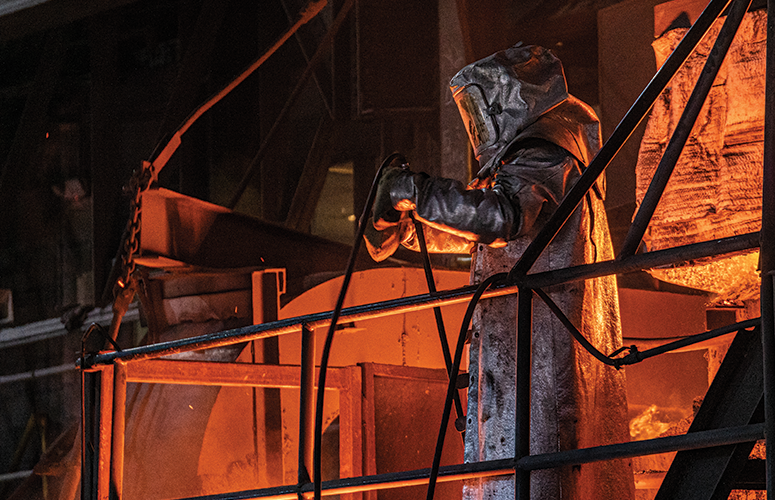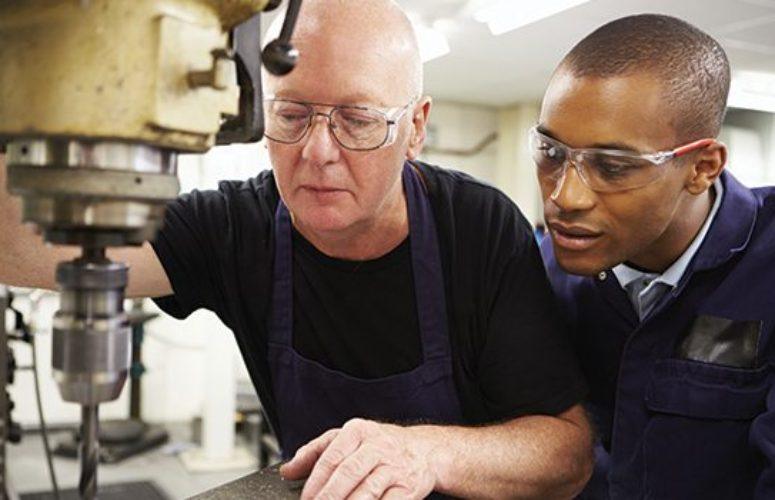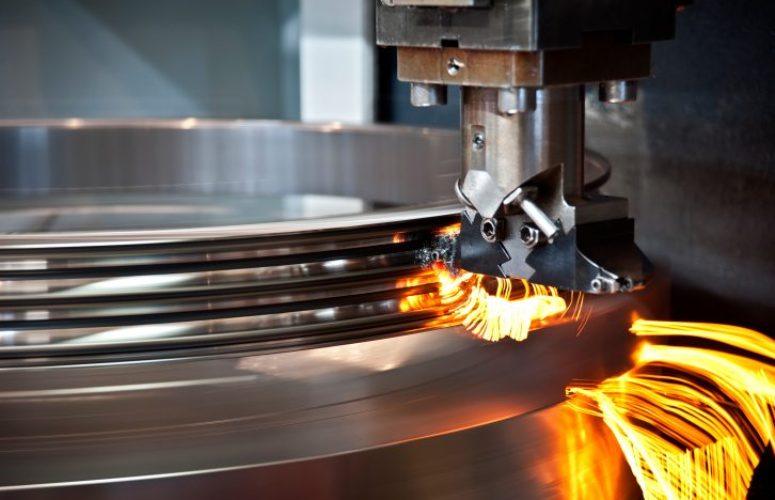
Manufacturers Grow By Investing in People, Technology, Capital Projects
The manufacturing sector remains strong by addressing the skilled labor shortage, rapidly implementing technology, and investing in capital projects.
By Joe Cavaluzzi, Contributing Writer On Oct 12, 2022New Jersey manufacturers are continuing to grow while balancing demand for more customization in their products, facing a skilled labor shortage projected to grow through the end of the decade, and addressing increasing calls for greater social and environmental responsibility.
Nearly 255,000 people work in the state’s manufacturing industry, and that’s not counting the life sciences and other sectors. They earn an average of more than $97,000 per year while contributing $56.2 billion to the state’s gross domestic product. Today, New Jersey is a place where all manufacturing is advanced manufacturing, using some form of digital communication, technology or software, according to the New Jersey Manufacturing Extension Program (NJMEP).
Here’s a look at a few of the state’s manufacturers and how they are growing in a challenging business environment.
BASF
“BASF Corporation follows a strategy of meeting our customers’ needs by producing our products in-region wherever possible,” says Tobias Dratt, president, BASF North America. “For example, nearly 70% of the products we sell in the US today are manufactured in-country. We also rely on a highly skilled and accessible workforce to power our New Jersey-based businesses and corporate service units, which makes Florham Park such a great place for us to maintain our North America corporate headquarters.”
BASF is the North American affiliate of BASF SE, Ludwigshafen, Germany. The company has more than 16,700 employees in North America and had sales of $25.9 billion in 2021. With a portfolio comprised of chemicals, materials, industrial solutions, surface technologies, nutrition & care, and agricultural solutions, the company does business in most sectors and countries. In addition to its Florham Park headquarters, BASF’s global catalysts division and its principal North American R&D facility are in Iselin. The company also has an operational site in Washington Township, Morris County.
BASF’s efforts to address the challenge of a severe lack of skilled workers in the US includes expanding its regional apprenticeship program. The National Association of Manufacturers (NAM) projects a labor shortage of 2.4 million skilled workers through the end of the decade. BASF’s apprenticeship program aims to close the gap. It offers on-the-job training, and workers earn industry-recognized credentials while receiving a full-time wage. Of BASF’s 2022 roster of new apprentice hires, 44% are female, in support of its goal of increasing the number of women in manufacturing.
McWane Ductile
Iron pipe manufacturer McWane Ductile New Jersey has operated from its Phillipsburg facility for more than 150 years and today employs 200 people who produced and shipped more than 50,000 tons of 3- to 24-inch ductile iron pipe for water systems and infrastructure last year.
The company’s primary market stretches from the Northeastern Seaboard to the Carolinas, but ductile iron pipe produced at the New Jersey plant is shipped across North America. McWane Ductile, a division of McWane, Inc., is the only ductile iron pipe producer in the Northeast.
The manufacturer, which averages $4.4 million in annual capital investment, projects sales at record volume in 2022, largely because of the passage of the Infrastructure Investment and Jobs Act.
New Jersey General Manager Keith Mallett says the ductile iron pipe market today demands an ever-increasing percentage of specialty products.
“The one-size-fits-all approach of years past has been replaced with customer requests for a wide mixture of joints, classes, linings and coatings, and this complexity requires significant investments,” Mallett says.
The company’s investment in state-of-the-art equipment and innovative processes has helped it manage significant headwinds, including global supply chain delays. Capital investments in New Jersey include a new small-diameter, high-speed casting machine that is giving its Phillipsburg facility the same technology proven successful at its Utah plant.
Labor remains a challenge, with a skills gap experienced by all the trades, Mallett says, as many young people are unaware of the opportunities that exist in manufacturing for competitive starting wages, career progress, retention bonuses, and comprehensive benefits.
The company also is investing in the Phillipsburg area. In 2004, it formed a Community Advisory Panel (CAP) comprised of a cross-section of community representatives and company stakeholders to address issues important to residents, including environmental, social and economic impacts. Since its creation, CAP has coordinated roughly $1 million in local philanthropic outreach.
Cambrex
East Rutherford-based Cambrex, a leading global contract development and manufacturing organization of pharmaceutical drug substances, has faced labor shortages and increased inflation pressure. The company, which was founded in 1981, has been resilient over the past two years by finding opportunities to strengthen operations and processes. Demand for its services increased and Cambrex implemented changes that improved its supply chain. The company reports increased interest in onshoring for pharmaceutical manufacturing, which fits well with its North American and European facility network.
“We continue to see strong demand for outsourcing services to support pharmaceutical development and manufacturing,” CEO Tom Loewald notes. “Security of supply has become critical for companies operating within the global economy, and we’re seeing more customers transition to domestic CDMO partners for primary or secondary supply.” In addition to investing more than $100 million to increase its manufacturing capacity in the US and Sweden, Cambrex also acquired Q1 Scientific to add stability storage capabilities to its European footprint.
“These investments substantially increased our overall manufacturing capacity for active pharmaceutical ingredients, but also added state-of-the-art analytical equipment, biopharmaceutical testing and flow chemistry capabilities,” Loewald says.
To access more business news, visit NJB News Now.
Related Articles:





